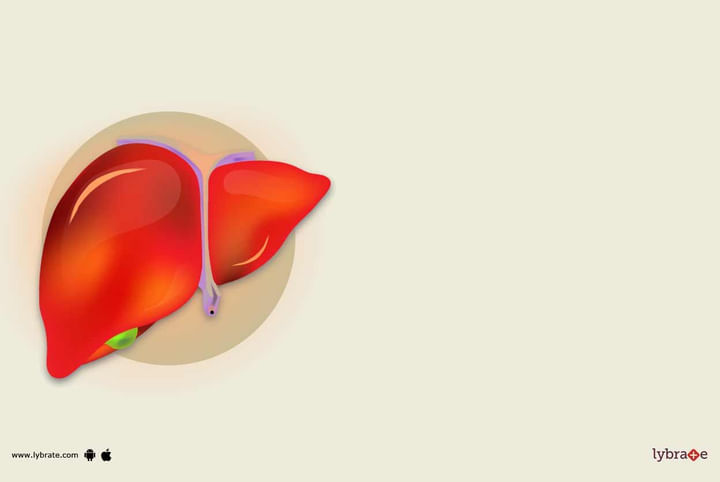The Liver Transplant Process!
Improvements in medical technology and surgery techniques have made so much possible. With organ transplants becoming relatively simpler and less risky, many critical health conditions can now be resolved. Liver transplants are one of the most common and patients going through the agony of life-threatening liver diseases now have hope.
What is a Liver Transplant?
When the patient’s liver is damaged to the extent that functioning is severely impaired and regeneration is not possible, a liver transplant is advised. In the transplant surgery, the diseased liver is removed and replaced by whole or part of healthy liver from the donor.
Types of Liver Transplants
Based on the type of donor, liver transplant can be classified as deceased donor and live donor transplantation.
- Deceased Donor Transplants (DDLT): A 'brain dead' person can be a liver donor if they had pledged their organs previously or if their relatives consent for organ donation. The healthy liver can give a new lease of life for an ailing patient.
- Live Donor Liver Transplants (LDLT): A blood relative or spouse may donate a part of their liver to the patient (subject to compatibility). As the liver is a regenerative organ, the donor's liver will function normally and the recipient will have a completely new liver. At Kauvery Hospital, a detailed evaluation of the prospective donor is done to ensure that the health risks are minimized and complete recovery is achieved.
Donor Safety
Donor can lead a normal and physically active life with no restrictions. Lifelong medications are not required and women can enjoy pregnancy and motherhood.
Who Needs A Liver Transplant?
- A person with end-stage liver disease is a candidate for a liver transplant. The failure can happen over a period of time or be a sudden occurrence, due medical conditions or reactions to drugs (ALF). Following are some of the common reasons for liver failure.
- Alcoholism: Long term drinking can lead to end stage liver disease.
- Biliary Atresia: Absence of bile ducts since birth.
- Chronic viral Hepatitis: (Hepatitis B & C)
- Haemochromatosis: An inherited disorder that overwhelms the body with abnormal levels of iron deposits including liver.
- Liver Cancer: (Hepatocellular carcinoma) Cirrhosis increases risk of liver cancer. Transplantation early would offer potential cure.
- Primary Biliary Cirrhosis: (PBC) An unusual condition with immune mediated destruction of the bile ducts resulting in failure of the liver.
- Non Alcoholic SteatoHepatitis (NASH): It is a common cause of liver disease seen in those with metabolic syndrome (Obesity, Diabetes Mellitus, Hypothyroidism and Dyslipidemia with or without Hypertension). Unlike alcoholic or viral hepatitis, it occurs in people with no inherent liver problem.Primary Sclerosing Cholangitis: (PSC) The bile duct gets scarred and narrowed, which blocks bile drainage, ultimately leading to failure of the liver.
- Wilson's disease: A very rare inherited disease that causes abnormal levels of copper deposition throughout the body including liver, ultimately causing liver failure.
What does a Liver Transplant Involve?
-
First stage: Evaluation: A team of specialists will evaluate the patient to determine if transplant is the best option or if any other course of action will be better. This includes review of the patient's medical history and a number of investigations.
-
If a patient is found to be a suitable candidate to undergo transplant, we proceed to the second stage where his or her name is placed on the waiting list if he or she opts for cadaveric liver transplant.
-
A scoring system based on medical criteria determines the priority. In general, sicker the patient, greater is the necessity for transplant.
-
Third stage: Donor becomes available. When a suitable donor has been identified, the patient is contacted and informed about donor's medical condition. If the patient consents, he or she will have to come to the hospital. Some basic tests will be repeated to ensure that the current condition is safe for surgery. Surgeons and anesthetists involved in the transplant will meet the patient and brief him or her about what to expect. Once all the test results are found to be satisfactory, we proceed for surgery.
The Procedure
-
While aspects of the surgery vary from patient to patient, the procedure typically takes between 8 to 12 hours to complete. Once the surgery is over, the patient is shifted to the ICU where he or she will stay for 3 to 7 days. At this stage, various tubes are connected to the body to enable it to carry out its natural functions. These are gradually removed as and when deemed appropriate. From the ICU the patient is shifted to a room for 2-3 weeks. In total, patient spends about 3-4 weeks in the hospital while undergoing transplant.
Discharge & Recovery
- Once the doctors deem that the patient can return home, he or she is discharged from the hospital.
- A follow up schedule is given to the patient so that complete recovery is monitored. Before discharge, patient and family will be trained on how to take medicines and what precautions to take. The number of medications will reduce over time as the recovery progresses.
- The pace of recovery depends upon several factors. In general, a patient may be able to resume daily activities by 1 month and resume work by about 3 months after the surgery.



+1.svg)
